
- Details
"Many factors go into assessing how much debt an economy can safely carry. Countries incur debt by borrowing. Borrowing can enable countries to finance important development programs and projects—but, taken too far, the burden of debt repayment can overwhelm a country’s finances, at worst leading to default.
Elevated debt in low-income countries and emerging market economies in recent years has raised concerns about countries’ capacity to sustain these levels of debt. COVID-19 is adding to spending needs as countries seek to mitigate the health and economic effects of the crisis. The resulting rise in public debt will likely heighten the tension between meeting important development goals and containing debt vulnerabilities."

- Details
"According to the World Economic Forum Jobs Report 2020, “automation, in tandem with the COVID-19 recession, is creating a ‘double-disruption’ scenario for workers. Technological adoption by companies will transform tasks, jobs and skills by 2025. Time spent on current tasks at work by humans and machines will become equal. The report also estimate that 97 million new roles may emerge as the new division of labour between humans, machines and algorithms emerges."
Read more … Pocket Dilemmas: Robots v Covid-19: the Future of Work?
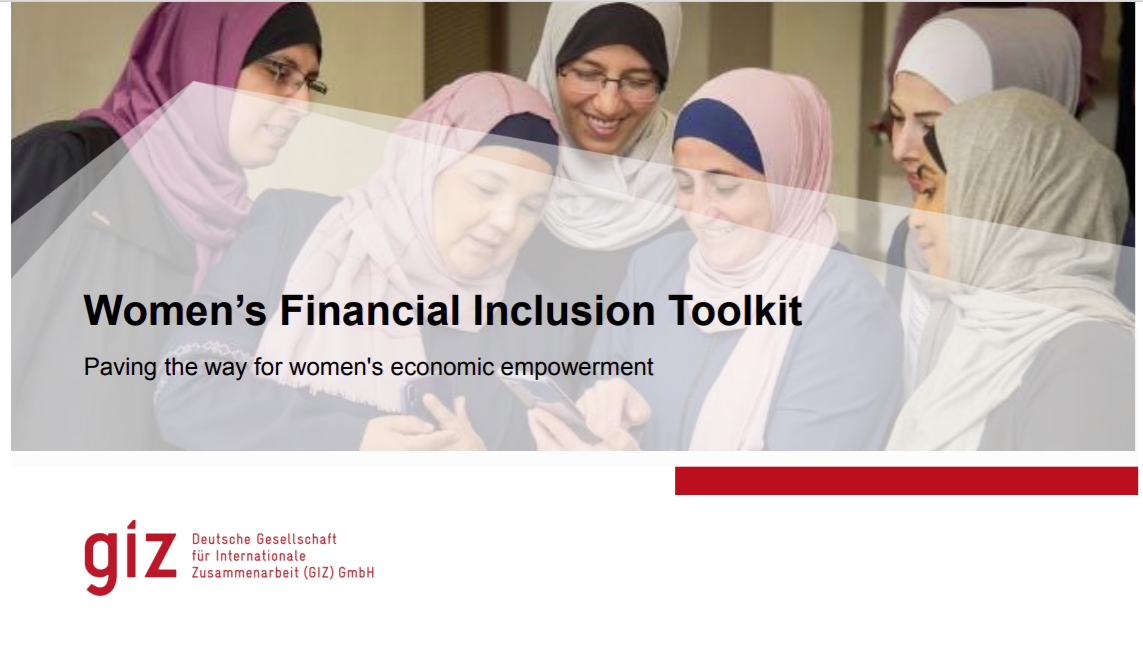
- Details
GIZ has prepared a comprehensive toolkit on women's financial inclusion. "The purpose of this toolkit is to help practitioners working in developing countries advance women’s financial inclusion and navigate the existing barriers.
The toolkit first provides you with an overview of women’s financial inclusion, its importance and benefits. Delving into project scoping, design, implementation, and measurement, it gathers tools, guidance, and project ideas.
Read more … Women’s Financial Inclusion Toolkit - Paving the way for women's economic empowerment
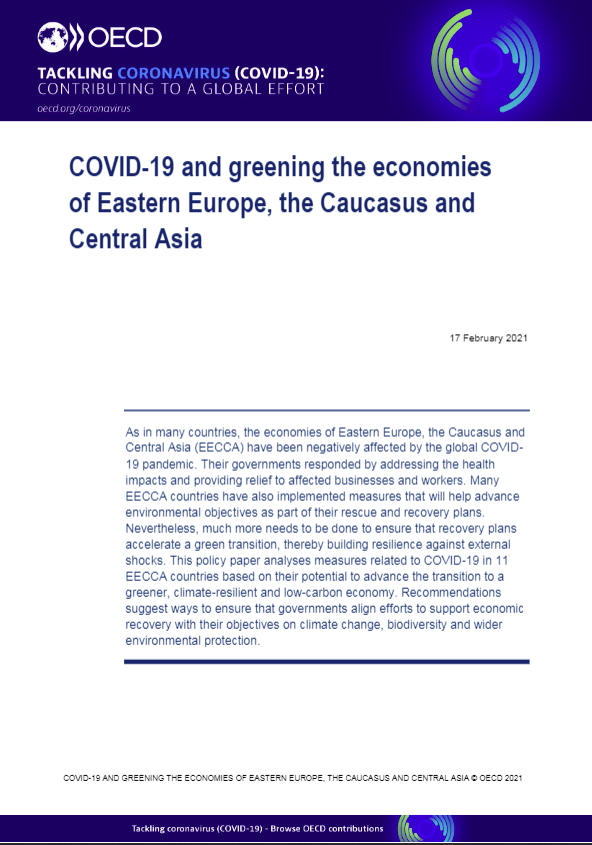
- Details
"As in many countries, the economies of Eastern Europe, the Caucasus and Central Asia (EECCA) have been negatively affected by the global COVID-19 pandemic. Their governments responded by addressing the health impacts and providing relief to affected businesses and workers. Many EECCA countries have also implemented measures that will help advance environmental objectives as part of their rescue and recovery plans.
Read more … COVID-19 and greening the economies of Eastern Europe, the Caucasus and Central Asia
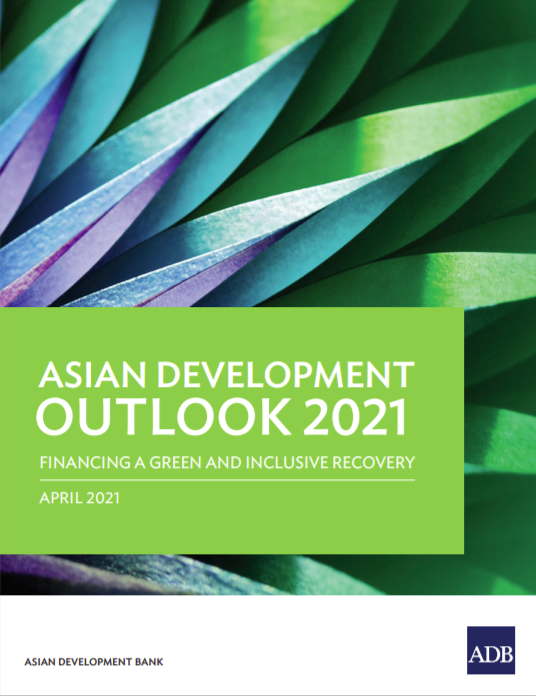
- Details
According to ADB's new Asian Development Outlook "Growth in 2021 is forecast to be strongest in East and South Asia, and more moderate in Central and Southeast Asia and the Pacific. The main risks to the outlook are new virus outbreaks or delays in vaccine procurement and administration. Prolonged unemployment and disrupted education caused by the pandemic could have long-term consequences.
Read more … Asian Development Outlook (ADO) 2021: Financing a Green and Inclusive Recovery
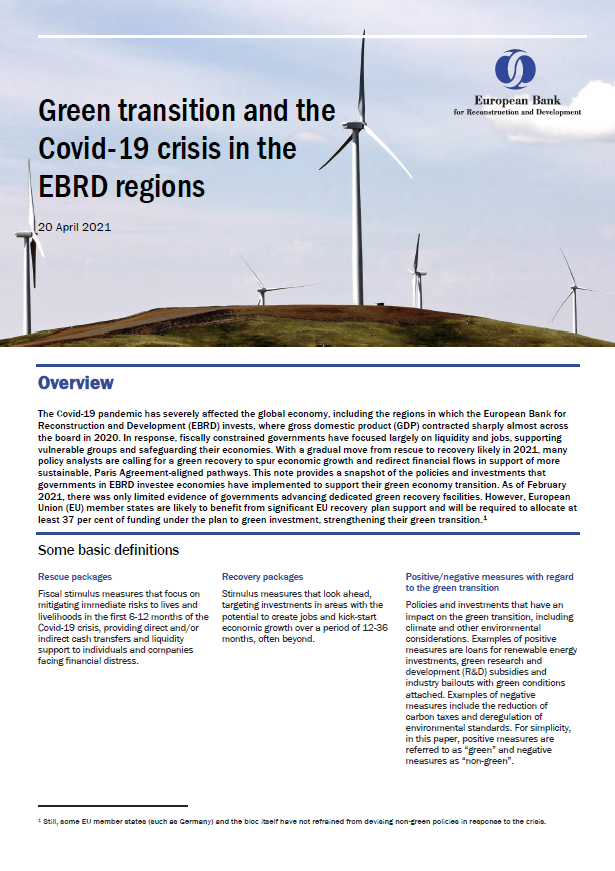
- Details
"This note provides a snapshot of the policies and investments that governments in EBRD investee economies have implemented to support their green economy transition. As of February 2021, there was only limited evidence of governments advancing dedicated green recovery facilities, apart from the European Union member states, who will accelerate their green transition amid the push through the EU recovery plan."
Read more … Green transition and the Covid-19 crisis in the EBRD regions
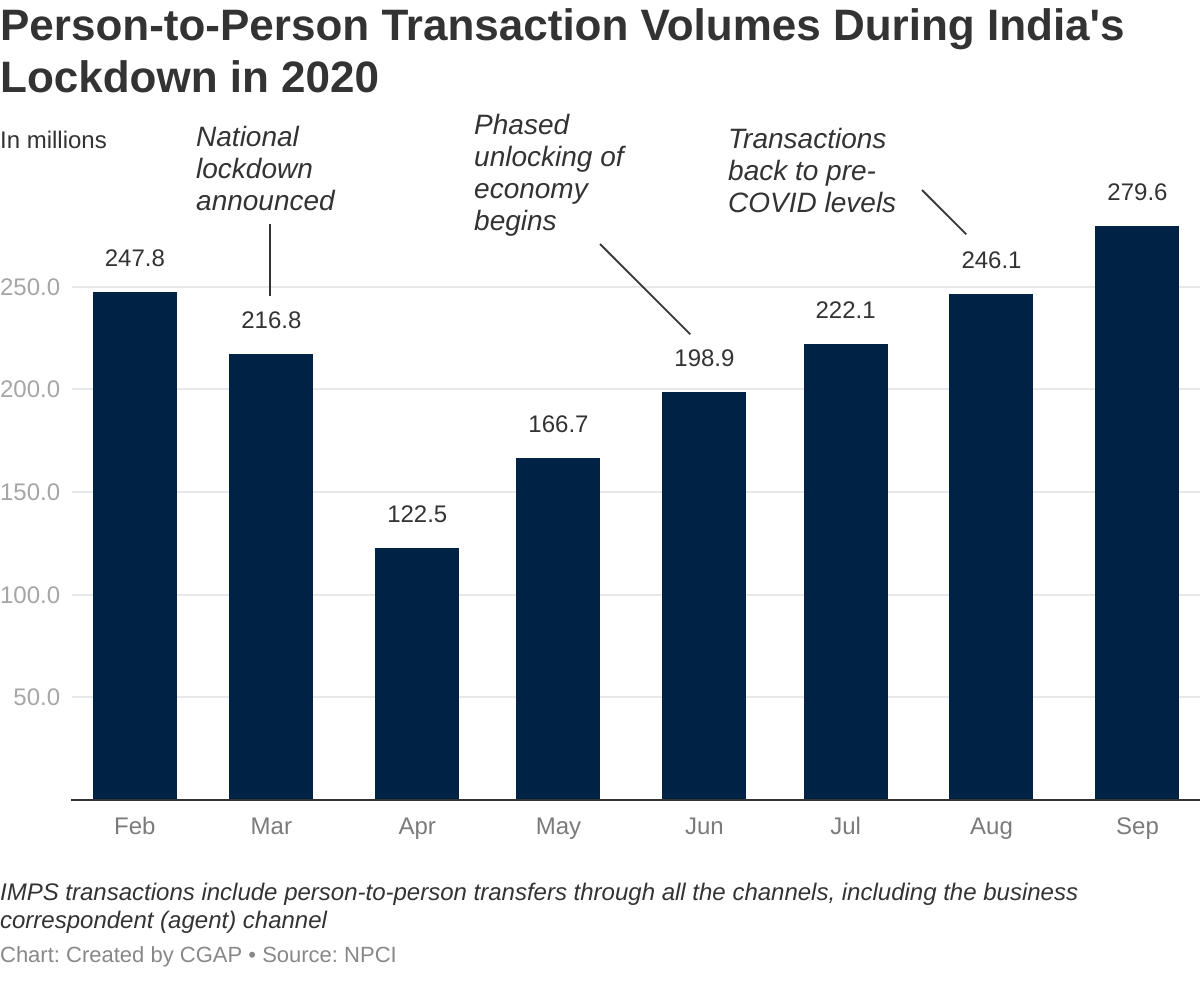
- Details
"COVID-19 cash assistance programs around the world have relied heavily on rural agent networks to distribute much-needed cash to their citizens. In the span of just a few months last year, India’s Pradhan Mantri Garib Kalyan Yojana (PMGKY) program distributed $8.8 billion to 428 million people, thanks in part to the country’s cash-in/cash-out agent network. But while the pandemic has underscored the importance of agent networks, it has also exposed significant flaws in their business models."
This blog looks into the role of agent networks during the pandemic and explores their vulnerabilities and possible ways to enhance them. The blog was posted on CGAP website in the English language. Click here to access the blog.
Source: CGAP
Illustration: CGAP
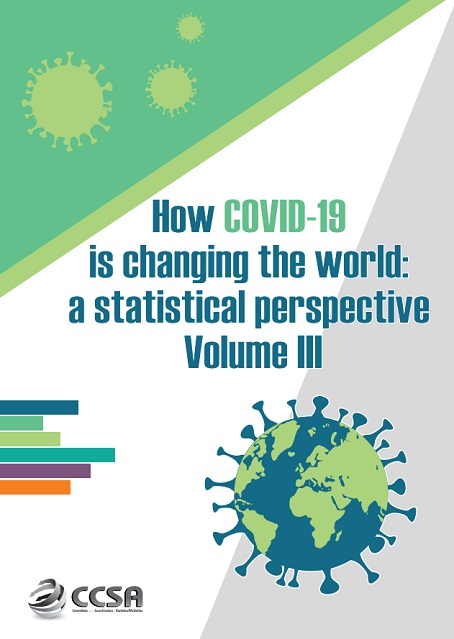
- Details
"Throughout the current crisis, the international statistics community has continued to work together, in partnership with national statistical offices and systems around the world to ensure that the best quality data and statistics are available to support decision making during and after the crisis. The third report - compiled jointly by international organizations, under the aegis of the Committee for the Coordination of Statistical Activities (CCSA) - gives a flavor of that cooperation.
Read more … How Covid-19 is changing the world: a statistical perspective - Volume III
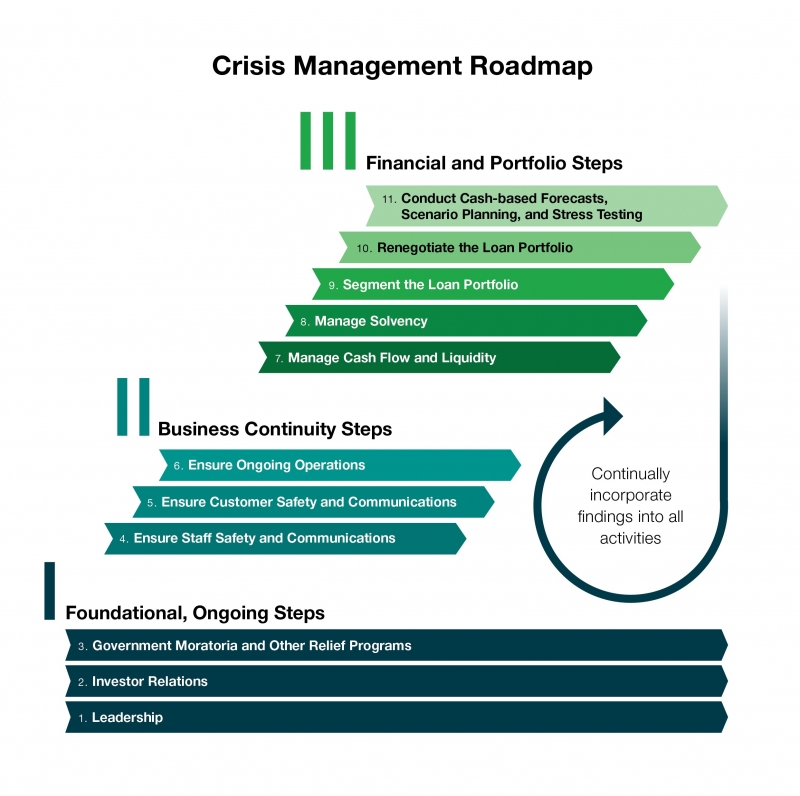
- Details
"This crisis response roadmap is designed to help MFIs navigate the immediate health pandemic and its economic impact, and to provide guidance on recommended practices that are both relevant today and for future crises. It lays out a sequence of steps for MFIs to follow, some of which are informed by earlier crises. The first series of steps are ongoing ones that are fundamental to good crisis management and cut across all others.

- Details
"The shift to a hyperconnected world presents a formidable opportunity—but also risks and challenges". This article discusses three important areas: sattelites for internet, digital IDs, and management of digital risks.
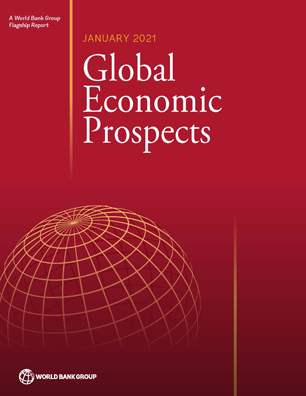
- Details
"Although the global economy is emerging from the collapse triggered by COVID-19, the recovery is likely to be subdued, and global GDP is projected to remain well below its pre-pandemic trend for a prolonged period. Several risks cloud the outlook, including those related to the pandemic and to rapidly rising debt. The pandemic has further diminished already-weak growth prospects for the next decade. Decisive policy actions will be critical in raising the likelihood of better growth outcomes while warding off worse ones. Immediate priorities include supporting vulnerable groups and ensuring a prompt and widespread vaccination process to bring the pandemic under control."
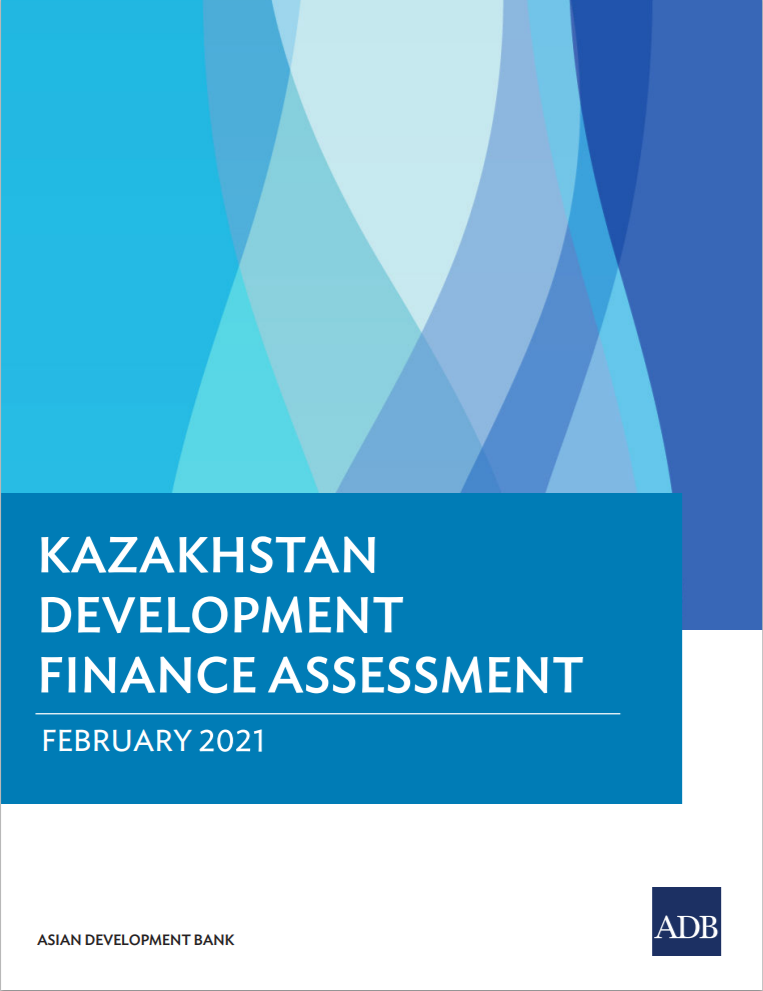
- Details
"Meeting the 2030 Agenda for Sustainable Development requires unprecedented investment from different sources. In recent years, total available development finance in Kazakhstan stagnated and decreased significantly as a share of gross domestic product. The publication also includes a review of existing policies and partnerships along with recommendations that are aligned with achieving the Sustainable Development Goals."


